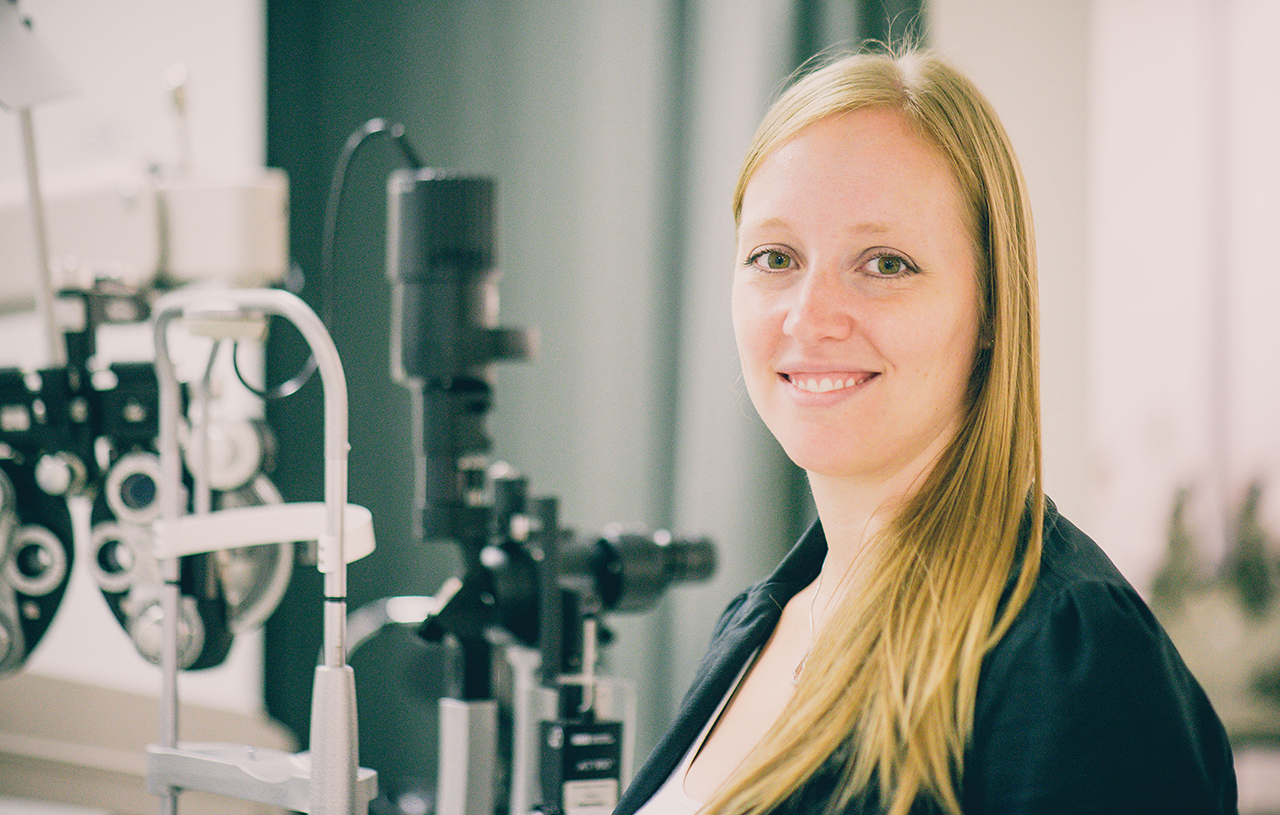
Dalton, a researcher in the School of Optometry and Vision Science, is working with World Para Alpine Skiing and World Para Nordic Skiing (WPAS/WPNS) to establish criteria that will allow for more equitable competition between skiers with vision impairments. Her work may lead to the development of one of the first sport-specific classification systems for athletes with vision impairment.
Dalton’s study, conducted with Paralympic athletes and researchers at the Vrije Universiteit in Amsterdam, explores the relationships between vision functions and skiing performance. The data gathered will inform the development of updated vision impairment classification criteria for Para skiing and, potentially, many other events in which athletes with vision impairments compete.
The International Paralympic Committee (IPC) currently uses a classification system to determine whether or not athletes are eligible, and sport classes to determine the group of athletes against whom he or she will compete.
Similar to boxing, where individuals of a similar weight compete against each other to ensure no athlete has an unfair advantage, the IPC classifies Paralympic athletes by the degree of limitation resulting from their impairment.
Through her work, Dalton hopes to ensure that the system accounts for sports’ unique factors, like the rapidly changing environment in Alpine skiing, where both terrain and light can vary immensely from second to second.
“We’re not just determining what the weight classes are, we’re determining how those classes might vary between boxing or taekwondo or jiu jitsu,” says Dalton. “And by developing evidence-based, sport-specific classification systems, the IPC can improve equity for competitors in many different events.”
This article appearted originally in the Fall 2018 issue of Waterloo magazine.